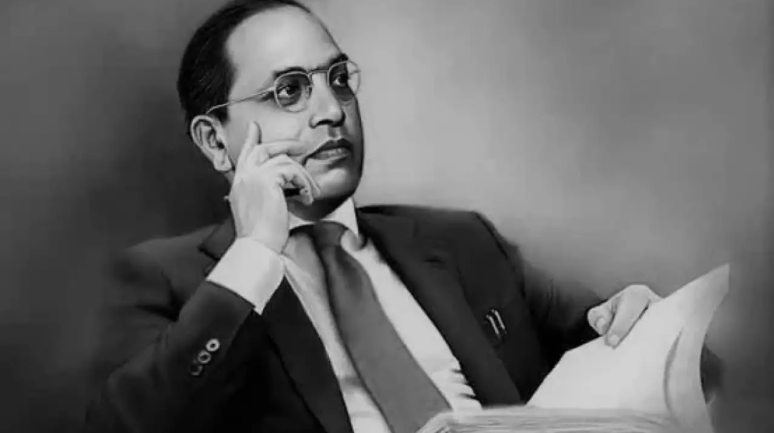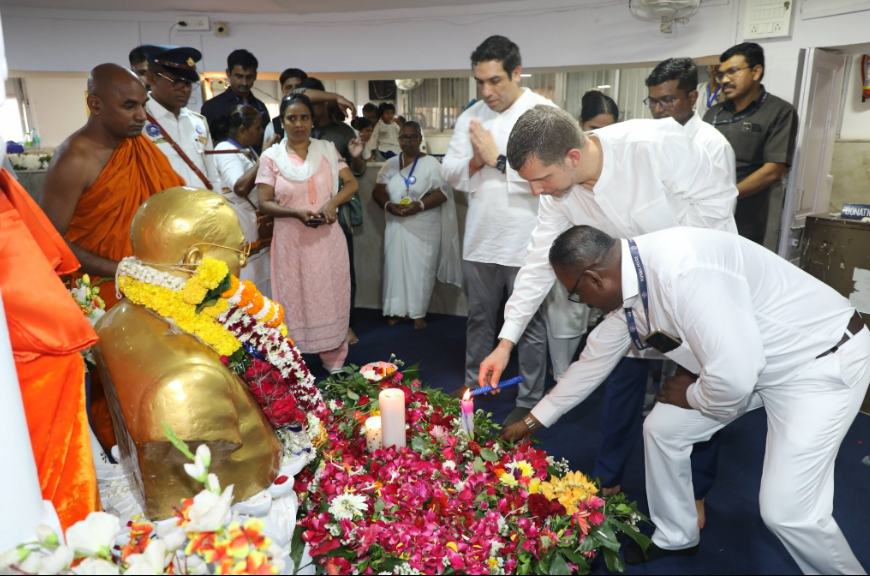Dr B R Ambedkar’s legacy in justice, equality, social reform, his role in India’s Constitution, and ongoing influence.
Dr B R Ambedkar prepared work for justice and equality. He was instrumental in the making of India’s Constitution. Dr. Ambedkar worked for the rights of the Dalits and other lower-income people. He strove for equality, liberty, and fraternity. It made laws that abolished untouchability and gave equal rights to others. He became a follower of Buddhism in the end and supported religious liberty too.
On his death anniversary (Mahaparinirvan Diwas), India remembers his important work. His works inspire people today in the fight for justice and equality.

A Day Like Any Other: The Morning and Evening of December 6, 1956
On December 6, 1956, Dr. B.R. Ambedkar was working quietly. He was editing his last book, “The Buddha and His Dhamma”. He was unwell but still worked hard.
He died in the evening at his residence in Delhi. The country was mourning. He was a great leader and the author of the Indian Constitution, who worked for social justice. He is remembered today on Mahaparinirvan Diwas, reminding us all to carry forward his dream of equality and justice for all.
A Long Struggle with Health: Chronic Illness in the Final Days of Dr. Ambedkar
Dr B R Ambedkar was diagnosed with chronic diseases in his old age. He was suffering from diabetes and high blood pressure. All this made him a lot of pain and not very mobile either.
His health problems worsened due to the stress from his busy lifestyle. He worked hard for the Indian Constitution and fought for the rights of Dalits. He was continuing to work since he finished his book “The Buddha and His Dhamma”.
He died peacefully on 6 December 1956. Along with economic emancipation, Dr B R Ambedkar gifted us also a rich heritage of social reformation and empowerment of poor and oppressed sections of people. The Night That Changed Everything: Sudden Deterioration and Passing
Country in Mourning: Announcement of the Death
Announcement of the Death of Dr B R Ambedkar on December 6, 1956: The day, Nation received News of the Death of an Inspiring Soul- Dr B R Ambedkar. He was the primary author of the Indian Constitution and a leader for the Dalits. Sudden death leaves a big loss.
The people, most especially the Dalit communities, were really sad at the loss. They felt he was a leader who helped them and respected them. Nationwide, huge crowds gathered in the streets to pay respect. In Mumbai, which had been his home for many years, funeral arrangements began immediately. His followers, many of whom became Buddhists under his guidance, saw his death as a spiritual event—his Mahaparinirvan.
Political leaders like Prime Minister Nehru shared their sorrow. He termed Dr B R Ambedkar a “great man” whose work would never fade in memory. Death brought the struggle for social justice and equality to people’s minds. Many were inspired by Dr B R Ambedkar when he was no more. His plans for a fair society remained and went ahead to lead India for so many years.
Ambedkar: Champion of Social Justice and Equality
Dr B R Ambedkar (1891–1956) is a prominent leader in Indian history. He is recognized for his fighting spirit towards justice and equality. He belonged to a Dalit family and had suffered from the evil practice of caste discrimination. This experience made him fight for the cause of oppressed people.
He led the Mahad Satyagraha to make water sources available to the Dalit public. He even burnt Manusmriti, a book that justifies the discrimination based on caste. Dr B R Ambedkar was the Chairman of the Drafting Committee of the Indian Constitution. He made sure it gave equal rights to everybody, especially Dalits and other marginalized groups.
In 1956, he took refuge in Buddhism to protest casteism in Hinduism. Through this philosophy, he encouraged Dalits, to adopt the slogan “Educate, Agitate, Organize.”. Dr B R Ambedkar was a fighting leader. He was an ardent fighter for equality and justice.
Chaitya Bhoomi: A Tribute to Dr. Ambedkar
It is situated at Dadar, Mumbai. It is the memorial of Dr. B R Ambedkar where his body was cremated on December 7, 1956. Millions of people visit to honor his work for equality and justice.
Historical Importance
Chaitya Bhoomi shows Dr. B R Ambedkar’s fight for justice and his decision to follow Buddhism. It reminds us of his efforts to help the oppressed.
Key Features
It has a stupa-like dome, a statue of Dr B R Ambedkar, and a Bodhi tree on the premises. There is an inner shrine where his ashes were kept with the facility for people visiting to pay homage to him.
Mahaparinirvan Diwas
Every year on December 6, millions of people gather at Chaitya Bhoomi. They light candles, pray, and remember Dr B R Ambedkar’s work for justice and equality.
Symbol of Hope
Chaitya Bhoomi can be termed as hope and the epitome of equality. These inspire people to be like what Dr B R Ambedkar had dreamed an equal opportunity society.
PM Modi’s Tribute to Dr. Ambedkar’s Legacy
On December 6, 2024, PM Narendra Modi continued with paying his tributes to Dr B R Ambedkar on Mahaparinirvan Diwas, marking the death of 69 years back”.
Saluting the vision of Ambedkar praises for the drafting of India’s constitution by Dr B R Ambedkar, PM Modi salutes. He said, “Ambedkar’s thoughts of justice, equality, liberty, and fraternity continue to inspire India today.”.
Work for the Marginalized
PM Modi spoke about the efforts of Dr B R Ambedkar for Dalits and women. He assured that the government will continue to support social justice and equality.
Legacy Preservation
The Prime Minister referred to projects such as the Dr. B.R. Ambedkar International Centre and the Panch Teerth. These are in commemoration of the life and work of Dr. B.R. Ambedkar.
Message for Citizens
The prime minister said people, especially the youths, must learn lessons from the life of Dr. Ambedkar and encouraged all to work towards creating India an Ambedkar-enabled land of equality and justice.
Crucially, this obituary pays attention to the highly important contribution of Dr. Ambedkar to India’s process of democracy and contemporary social development struggle.
BSP party workers gather at Ambedkar Park in Lucknow today on the death anniversary of Dr BR Ambedkar.@ashishaajtak #news #BRAmbedkar #Lucknow #ReporterDiary pic.twitter.com/IfiYU7UVWy
— IndiaToday (@IndiaToday) December 6, 2024
Remembering Dr. Ambedkar on His Death Anniversary
December 6, 1956, is the death anniversary of the father of India’s constitution and a crusading social activist. His work lives on and breathes for this Indian democracy and current-day reforms.
Shaping Modern India
Dr. Ambedkar drafted the Indian Constitution. He ensured it safeguards the basic rights of Dalits and other oppressed sections of society. He struggled for the abolition of untouchability and advocated for affirmative action to assist the sections.
Champion of Social Justice
Dr. Ambedkar fought caste discrimination all his life. He used to work for the oppressed. His popular slogan is “Educate, Agitate, Organize.” This motivation inspired so many people. He became a follower of Buddhism with his followers in the year 1956 and fought for equal rights resisting casteism.
A Day of Tribute
On Mahaparinirvan Diwas, people assemble at Chaitya Bhoomi in Mumbai to pay homage to Dr. Ambedkar. Leaders and citizens reflect on his work and remind India to keep moving towards an equal society.
A Legacy of Empowerment
Dr. Ambedkar inspires me to fight for social reforms. His work in education, ending untouchability, and supporting women’s rights remains very important. His legacy reminds us to live by the values of liberty, equality, and fraternity for all justice.

Reflections of Ambedkar’s Ideal in India Today
Dr. B.R. Ambedkar was a constituent maker for India. His cause for social upliftment, justice, and equalization of society is in itself very inspiring, especially for those who are suppressed by society.
Social Justice and Equality
Dr. Ambedkar fought against caste discrimination and worked for the rights of Dalits, and other oppressed groups. While legislation has improved equality, however, caste discrimination prevails in many areas. His ideals of dignity and inclusion helped shape affirmative action policies.
Education for Empowerment
Ambedkar believed education was key to breaking caste oppression. Although literacy has significantly increased, access to good education remains non-uniform, particularly in rural areas. He wanted better education for marginalized groups so that their lives could be improved.
Women’s Rights
Dr. Ambedkar believed in women’s rights. He worked on the legislation that enhanced the rights of women in marriage, inheritance, and property. Yet, despite these achievements, women are still facing issues such as gender violence and discrimination in the workplace.
Religious Freedom and Secularism
He accepted Buddhism as a form of protest against caste discrimination. He was a votary of religious freedom and a secular society in which all religions can live together peacefully. That is still an important thought today because India has to face religious intolerance.
Economic Justice and Inclusive Growth
Ambedkar believed in economic justice for true equality. Even though India’s economy has grown, inequality still exists. The marginalized communities still do not have equal economic opportunities. Ambedkar’s ideas guide efforts to make the economy fairer.
A Continuing Struggle
He had a vision of an equal and just society, yet evil exists in the forms of casteism, sexism, and economic inequality. The rights movements of the Dalits, women, and education represent a continuum of work begun by him.
As India rises, Ambedkar’s ideals of equality, liberty, and fraternity remind us of our continuing effort to have a fair society for all.
Also Read: Sukhbir Singh Badal: Target of 2024 Golden Temple Attack by Khalistani Militant Narain Singh Chaura